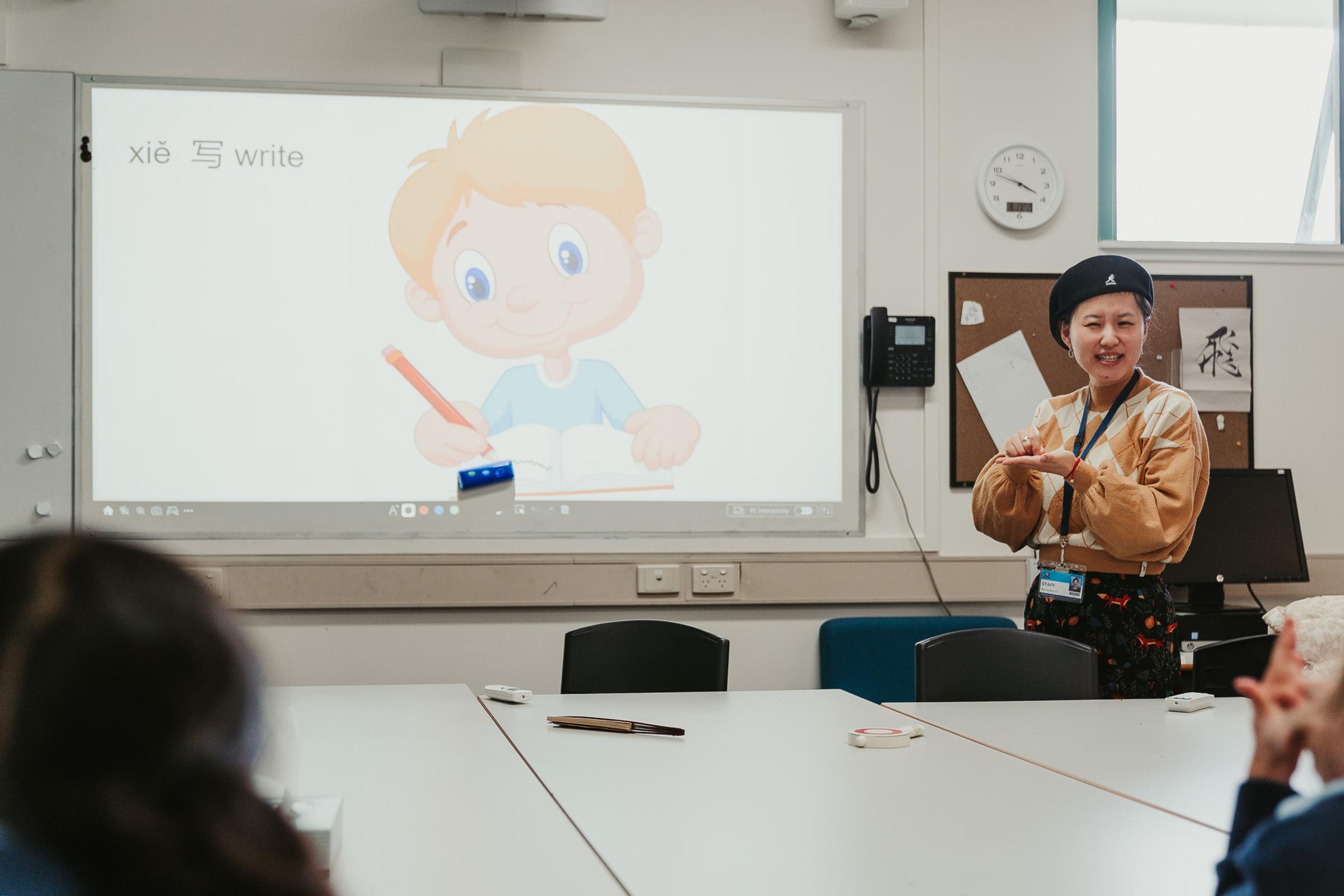Languages News

“One language sets you in a corridor for life. Two languages open every door along the way.” – Frank Smith
As we are coming up to subject selection, I thought this is a good time to go through options for Languages study. There are many benefits to studying a Language – here are just a few:
- Academic Achievement – improvement in literacy, cognitive development and thinking skills through learning languages
- Work and Career Opportunities – the ability to compete on a global, multilingual job market
- Global Citizenship – gaining the ability to deal respectfully with others
- Personal Benefits – opportunities to travel through student exchange and tours; communication world-wide
- Maintenance of Cultural Identity and Diversity
For those who are interested in learning a little more, I’m also attaching some links to the end of this article to academic studies relating to the benefits of studying a second (or third!) language.
A few years ago, Google conducted an analysis of its personnel data and came up with a list of the most important qualities of top employees. The seven top characteristics of success at Google are all soft skills:
- being a good coach
- communicating and listening well
- possessing insights into others (including others different values and points of view)
- having empathy toward and being supportive of one’s colleagues
- being a good critical thinker and problem solver
- being able to make connections across complex ideas.
Not surprisingly, these are all the sorts of things we do in our language learning classrooms. It’s not just about language acquisition. Even if your daughter is not planning to continue with her language studies into her VCE, she is practising critical and creative thinking in her language classroom, as well synthesis and analysis skills that will stand her in good stead in whatever direction she chooses for her future studies.
There is some research that shows that students who have studied a language longer generally performed higher in NAPLAN, PAT R and Australian Spelling tests. In 2022, 61% of our Language students achieved an adjusted study score of over 40, and 77% achieved an ATAR of over 90. The students worked hard for their results, but the skills they practised in their Language classrooms may also have helped them to succeed in their other subjects as well.
Language pathways at Shelford
- Students in Year 7 are required to study at least one language in Year 8. They can choose either Japanese or French, but they also have the option to continue with both languages in Year 8.
- Studying a language is compulsory in Year 9 and students will continue the language they are studying in Year 9, but students who choose to study two languages in Year 8 are not locked into continuing two languages in Year 9. They can drop back to one language in 2024 if they choose.
- Languages are completely optional in Year 10, but a Year 10 sequence is a prerequisite for VCE Language studies.
We’ve put up some posters around the school with links to some more information about studying languages, and you might also be interested in following these links:
25 reasons to learn a language
Research Papers
Listening skills (Krizman et al., 2012)
Memory (Morales et al., 2013)
Concentration (Bialystok & Craik, 2010)
Problem solving skills and critical thinking (Boaz, et al., 2012)
Language sensitivity and awareness (Werker & Sebastian-Galles, 2011)
Open mindedness and flexibility (Gold et al., 2013)
Julie Devine
Head of Languages

